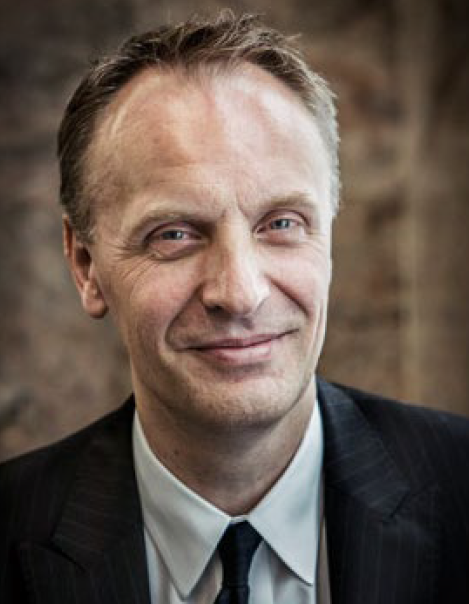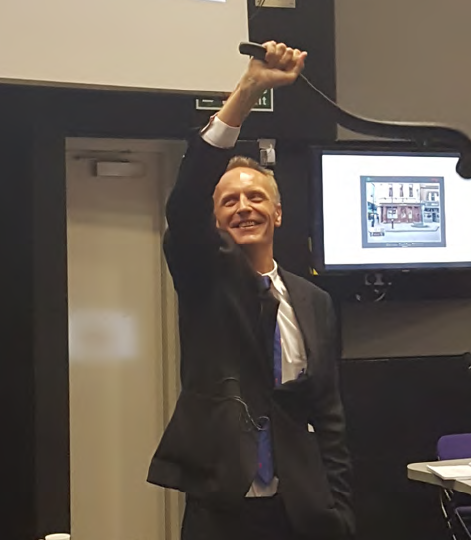The 25th Annual Pumphandle Lecture was delivered on 12th September 2017, by Dr Richard Horton, Editor in Chief of The Lancet.
Thank you for reading this post, don't forget to subscribe!This was a broad and passionate critique of global heath and today’s world. Dr Horton began by emphasising a fundamental principle of evolutionary biology which guides selection for altruistic behaviour: “rB>C” where r is relatedness, B is benefit and C is cost. In effect the more distantly related are two individuals, then the greater the benefit must be of an action if it is to be worth doing (ie to exceed its cost). He then reviewed the contrast between techno-utopian (ever increasing healthy life expectancy, robots for everything…) versus the dystopic (2
billion climate refugees by 2100, unsustainable environments, heightened extinction risks…) visons of our future, and related this to historical trends, in particular the evolution from the optimism of the 17th century enlightenment, to the desperate circumstances of urban environments in the early industrial revolution and political reaction, to the consequent anger and despair of the romantic movement. References to Aimee Cesaire,
Francis Bacon, John Rawls and Amartya Sen were cited to illustrate these tensions and point to the importance of dialogue and communication between peoples.
At this point our speaker referred to his own experience as editor of a major journal, which publishes much in the area of global health, and regretted that so much of the reality of the contemporary communication industry was concerned with survival and impact factors and profit and competition, with too little concern for purpose and meaning of the larger enterprise. Too much concern for human rights which focuses upon our rights over others… too much focus upon the extremism of others but not of ourselves… too much concern over the “post truth” world without sufficient concern for the brutal facts of the lives of others.
Turning to solutions he referred to the usual calls for equity and the right to health … but stressed the overall importance of solidarity, or the degree of social cohesion – hence returning to his original reference to rB>C, stressing the importance of relatedness and the need to expand this beyond simple genetics to all humanity. We in the health professions have much to contribute, as health is one of the greatest levers for creating solidarity between all peoples. This is turn will require moving beyond simple objective descriptions of our subjects
and study participants, as in so much contemporary research, to sympathetic appreciation of the plight of others and of our common humanity. To help meet this challenge he announced that The Lancet would start a new series exploring personal experiences.
He concluded by referring to the great romantic William Blake, who was born very near to the Broad Street pump, and who noted that “what is now proved was once imagined”.
The vote of thanks was proposed by Professor Jimmy Whitworth, and Dr Horton was invited to remove the handle of the pump to close the proceedings. Society Members then adjourned to the John Snow Pub in Soho for the Annual General Meeting of the Society.


